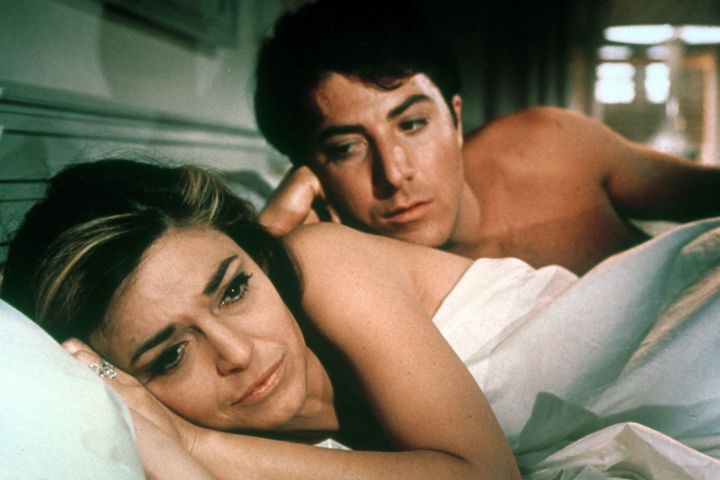
It’s time to celebrate the best that movies have to offer. That’s right, the 2024 Oscars ceremony is almost here. And 2023’s best movies, including Oppenheimer, Poor Things, Killers of the Flower Moon, and Barbie, are among this year’s impressive crop of nominees.
- 1920s: The Broadway Melody wins Best Picture
- 1930s: Luise Rainer undeservedly wins 2 Best Actress Oscars
- 1940s: How Green Was My Valley wins Best Cinematography
- 1950s: Judy Holliday wins Best Actress for Born Yesterday
- 1960s: In The Heat of the Night wins Best Adapted Screenplay
- 1970s: Art Carney wins Best Actor for Harry & Tonto
- 1980s: Gandhi wins Best Picture
- 1990s: Roberto Benigni wins Best Actor for Life is Beautiful
- 2000s: Frida wins Best Original Score
- 2010s: Green Book wins Best Picture
- 2020s: Jamie Lee Curtis wins Best Supporting Actress for Everything Everywhere All at Once
While it’s fun to celebrate the best in films, it’s also enjoyable to look back and ask, “Did they really give an Oscar to that?” The following list spotlights some of the Oscars’ worst and most head-scratching winners from each decade that the awards show has existed, from one of the all-time worst Best Picture winners in the 1920s to a still-shocking win from a one-time Scream Queen in 2023.
Need more Oscar recommendations? Check out how to watch the 2024 Oscars for free, 2024 Oscar predictions, 10 biggest Oscar snubs ever, 10 best Oscar-winning movies ever, 10 most Oscar-nominated movies ever, and 5 great Oscar-winning movies on Amazon Prime Video.
1920s: The Broadway Melody wins Best Picture

Although the Oscar ceremony was only around for the last two years of the 1920s, there are still plenty of candidates that qualify as “the worst Oscar winner” for this or any decade. I’ll go with the consensus and select The Broadway Melody taking Best Picture as the worst winner for this period. The movie, now virtually forgotten, typifies all the negatives of the era, which was still undergoing the rough, awkward transformation from silent to sound movies. This includes awful stilted dialogue, terrible acting, and stodgy direction.
What’s worse, The Broadway Melody gave the musical genre a bad name; only one other musical won Best Picture in the next two decades, and that one, The Great Ziegfeld, had the benefit of being a biopic (a genre Oscar loves).
1930s: Luise Rainer undeservedly wins 2 Best Actress Oscars
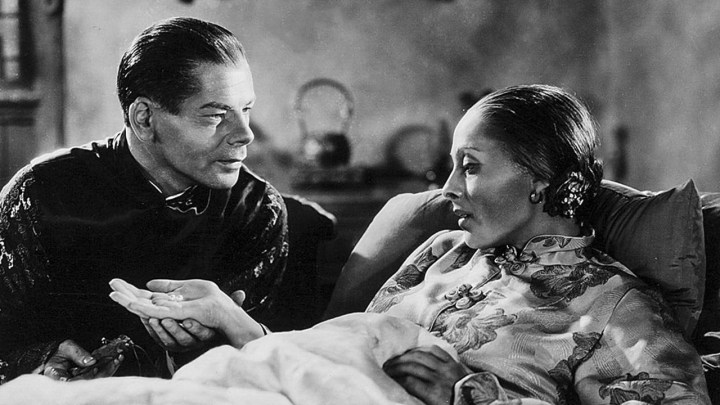
It’s hard to win an Oscar; just ask Michelle Pfeiffer and Glenn Close, who have yet to take home a golden statuette. It’s even harder to win two of them, and the first actor to do it wasn’t Katharine Hepburn or Bette Davis — it was Luise Rainer, who won consecutive Oscars for her work in The Great Ziegfeld in 1936 and The Good Earth in 1937.
Rainer isn’t particularly good in either movie and to make matters worse, she won over better performances from Carole Lombard in My Man Godfrey and Greta Garbo in Camille.
1940s: How Green Was My Valley wins Best Cinematography
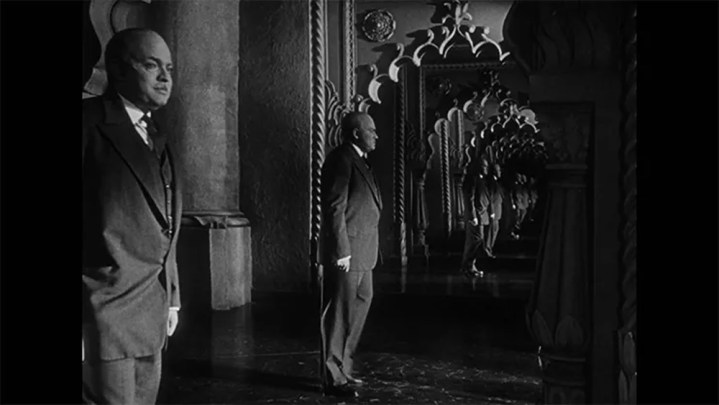
It may seem odd to highlight a comparatively “minor” category like Best Cinematography, but it’s important to spotlight just how wrong it was for Arthur Miller to win here. First, no, he’s not THAT Arthur Miller (he didn’t write The Crucible) and second, while his work on John Ford’s pastoral epic How Green Was My Valley was very good, it wasn’t as nearly impressive, not to mention as groundbreaking, as Gregg Toland’s revolutionary camerawork was on Citizen Kane.
You might as well pencil in every Oscar winner this year who beat Citizen Kane in the categories it was nominated in because Orson Welles’ film changed cinema forever and deserved the recognition. And Toland’s deep-focus visuals gave movies a richness and depth they lacked before. His work on Citizen Kane helped pave the way for 2001: A Space Odyssey, Mulholland Drive, and even Dune: Part Two, and it should’ve been recognized in its time.
1950s: Judy Holliday wins Best Actress for Born Yesterday
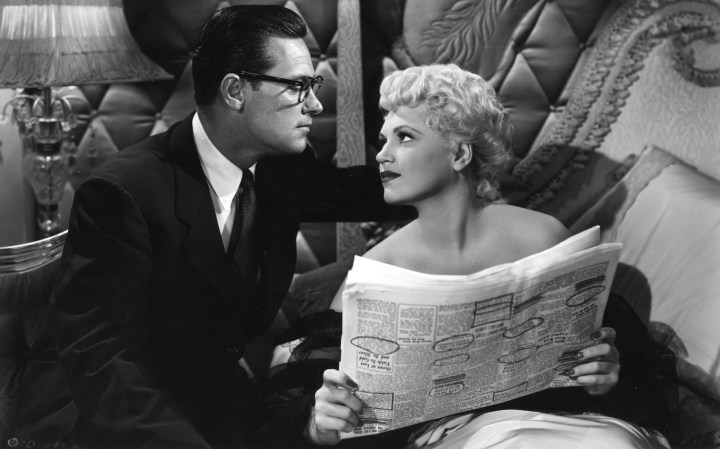
This is a tough one to argue because I actually think Judy Holliday is wonderful in Born Yesterday and, in almost any other year, she deserved to win an Oscar. But this is 1950, and Holliday was up against not one, but two legendary actresses who gave the best performances of their impressive careers: Gloria Swanson in Sunset Boulevard and Bette Davis in All About Eve.
That neither one of them won, or even tied with each other or Holliday, is such an artistic crime that it’s still talked about today. Holliday is still remembered, of course, and Born Yesterday still holds up because of her, but no one that year, or any decade, really, could touch the brilliant work that Davis and Swanson did in their respective films.
1960s: In The Heat of the Night wins Best Adapted Screenplay
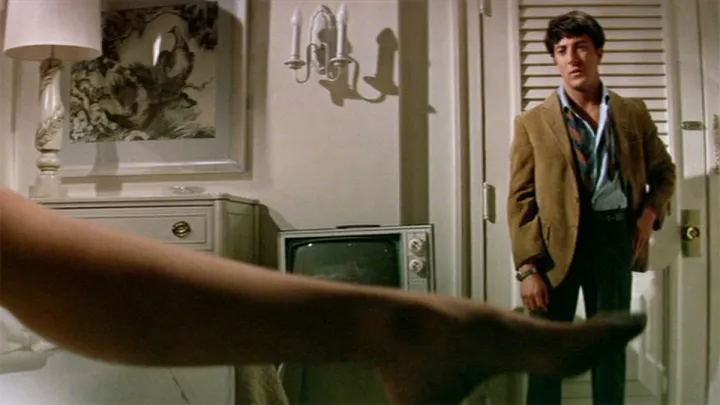
If someone asks you what is one of the most signature American movies was, chances are, you’d say The Graduate. No other film defines what the 1960s were all about: the clash between generations, the sexual freedom, the uncertainty about where society was going, and above all else, “Plastics.” The Graduate summed up a pivotal moment in time that few movies have done before or since.
So it’s surprising that it didn’t win a lot of Academy Awards in 1968. Best Actor, Best Actress, and Best Picture were all awarded to other films and performers, with only the movie’s director, Mike Nichols, winning in his category. At the very least, Buck Henry’s clever screenplay should have won over Stirling Silliphant’s solid if unimaginative script for In the Heat of the Night, but the Academy played it too safe, and went for the conventional over the exceptional.
1970s: Art Carney wins Best Actor for Harry & Tonto

Oscar is a sucker for sentimentality, and it got really bad in the ’70s, when the Academy picked old favorites over exciting new talent. How else can you explain Jack Lemmon winning for Save the Tiger over Al Pacino in Serpico and Jack Nicholson in The Last Detail? Or Ingrid Bergman winning for Murder on the Orient Express over Madeline Kahn in Blazing Saddles? And don’t get me started on all those nominations for Airport, Earthquake, and The Towering Inferno, three “disaster” films that are truly execrable.
But it was never worse than in the 1974 Best Actor category, which had among its nominees Jack Nicholson for Chinatown and Al Pacino for The Godfather Part II. That Art Carney, a TV veteran best-known for his role as Ed Norton on The Honeymooners, won, and that he triumphed for the cloying Harry & Tonto, is among Oscar’s biggest mistakes ever, and one that still stings even today.
1980s: Gandhi wins Best Picture
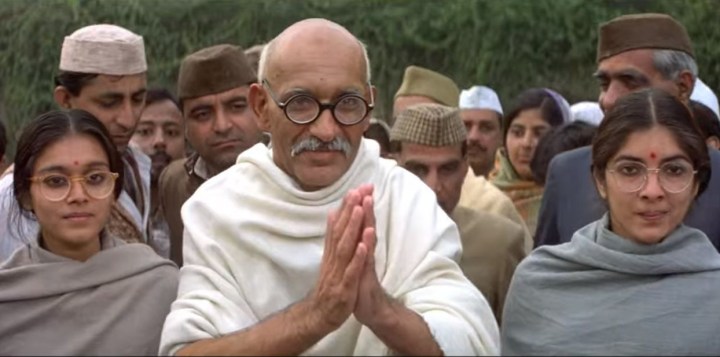
Oscar just can’t resist a biopic. From The Life of Emile Zola in 1937 to last year’s Maestro, it’s been the Academy’s catnip throughout the decades. Biopics are so appealing to Oscar voters because they are usually very straightforward, traditional, and crowd-pleasing. You can see all the work that’s been put into them just by comparing their fictionalized subjects to their real-life counterparts.
When Gandhi won Best Picture in 1983, it’s wasn’t a shock; it had all the elements necessary to take the top prize, plus Best Actor and six (!) other awards. But even then, people were probably thinking, “Yeah, Gandhi‘s OK, but I’d rather watch E.T. and Tootsie again.” That those two movies failed to take the top prize, and have since became beloved classics that are just as potent in 2024 as they were in 1982, speaks both to the Academy’s stubbornness in being attracted to, and awarding, one type of movie, and to Gandhi‘s diminished cultural significance. Now, if you’ll excuse me, I need to go watch Tootsie again.
1990s: Roberto Benigni wins Best Actor for Life is Beautiful
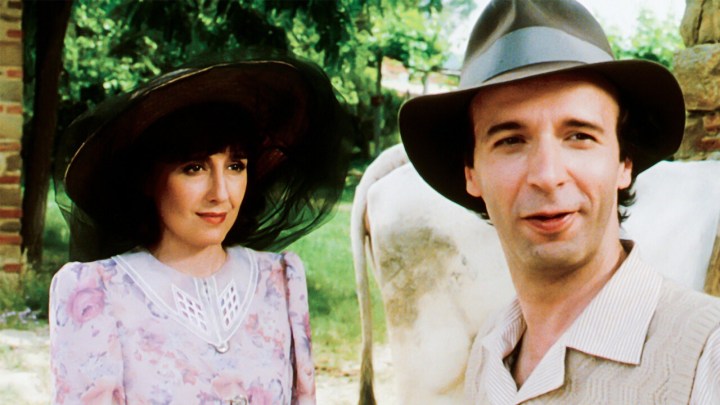
Mamma mia! I apologize for starting off the an Italian stereotype, but that’s what Roberto Benigni’s performance in Life is Beautiful is full of: cartoonish exaggerations. That he wrote and directed such an offensive picture only adds salt to the wound. Why did the Academy fall head over heels for his performance? And why did it honor him not once, but twice, by awarding him Best Foreign Film that year over better candidates like Central Station and Children of Heaven.
I’d understand better if the Best Actor field was weak that year, but it wasn’t; in fact, it was the strongest in years, with Ian McKellan (Gods and Monsters), Tom Hanks (Saving Private Ryan), Nick Nolte (Affliction) and Edward Norton (American History X) each deserving a place at the winner’s podium. Each of those actors have since been nominated for other Oscars, while Benigni has since faded from the limelight.
2000s: Frida wins Best Original Score
Movies move people in different ways. Sometimes, it’s a performance that touches something deep in you; other times, it can be a well-directed sequence that becomes seared in your memory. In 2003, Philip Glass’ deep and resonant score to The Hours spoke volumes about the lead characters’ complex inner lives, and seemed to be the perfect capstone to an already impressive music career.
Alas, it was not meant to be, as Elliot Goldenthal won for Frida, a middling 2002 biopic (there it is again!) starring Salma Hayek. I have nothing against Goldenthal’s work in that movie, and he should’ve won for his great score for Titus in 1999, but it can’t compare to what Glass did in The Hours. It’s not every day someone can compose a soundtrack for the human soul, but Glass did just that in The Hours, and should have won his overdue Oscar.
2010s: Green Book wins Best Picture
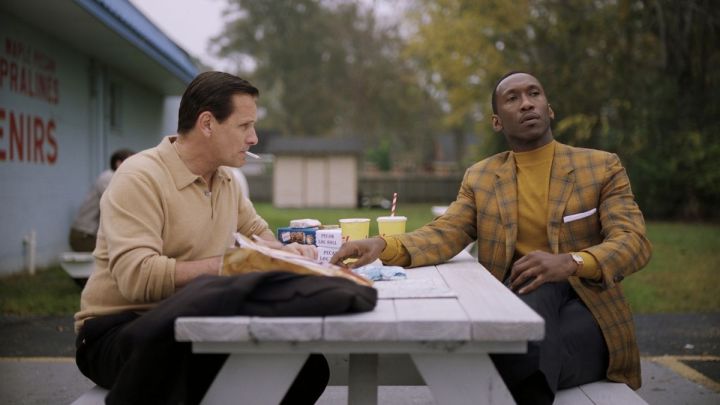
It had been a while since the Academy had mucked up Best Picture. After The Artist‘s inexplicable win in 2012, there was a long stretch when the Best Picture winner was not only respectable, but made sense. Birdman, 12 Years a Slave, Spotlight, Moonlight — these movies were indicative of an Academy willing to be riskier (for them) than in years past, while also honoring movies that were fairly popular with critics and audiences alike.
And then came Green Book in 2018, and the Academy collectively lost their damn minds. Who knows why they decided to honor a movie that takes a complex subject like race relations in the 1960s American South and makes it into a generic road movie full of Hallmark clichés? While Driving Miss Daisy, another simplistic movie that reduced thorny racial issues into soft platitudes about the human condition, had won Best Picture in 1990, that was decades ago, and the belief was that the Academy had evolved since then. It turned out that it hadn’t, at least in 2019, and voters made one of their biggest mistakes ever by honoring Green Book over the likes of Roma and The Favourite.
2020s: Jamie Lee Curtis wins Best Supporting Actress for Everything Everywhere All at Once
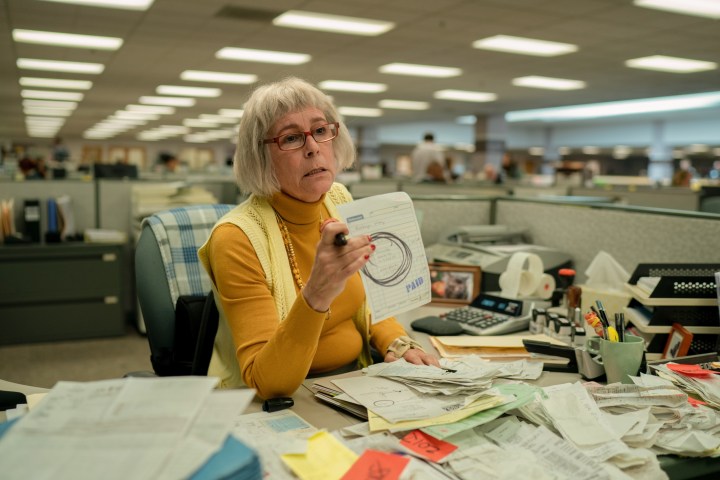
Don’t get me wrong, I love Jamie Lee Curtis. She’s been excellent for decades, from 1978’s Halloween to 1988’s A Fish Called Wanda to 1994’s True Lies. She was never been an Academy-friendly actress, preferring genre fare over Oscar-bait movies, and that made me respect her even more. She didn’t give a hoot about awards; she just wanted to make cool movies like Knives Out.
So I was conflicted when she was honored her supporting performance in Everything Everywhere All at Once. It was cool seeing her win, but let’s face it, her performance was just OK. It couldn’t be anything more than that, because the role wasn’t all that deep, important, or interesting. To steal a famous quote, there was no there there, and her win is one of the most perplexing victories in Oscar history.
Editors' Recommendations
- 7 best director’s cuts, ranked
- 2024 Oscar winners: Oppenheimer wins 7 awards, including Best Picture
- Oscars live stream: Watch the 96th Academy Awards for free
- All the 2024 Best Actress Oscar nominees, ranked
- 5 great Hulu movies you need to watch instead of the 2024 Oscars




